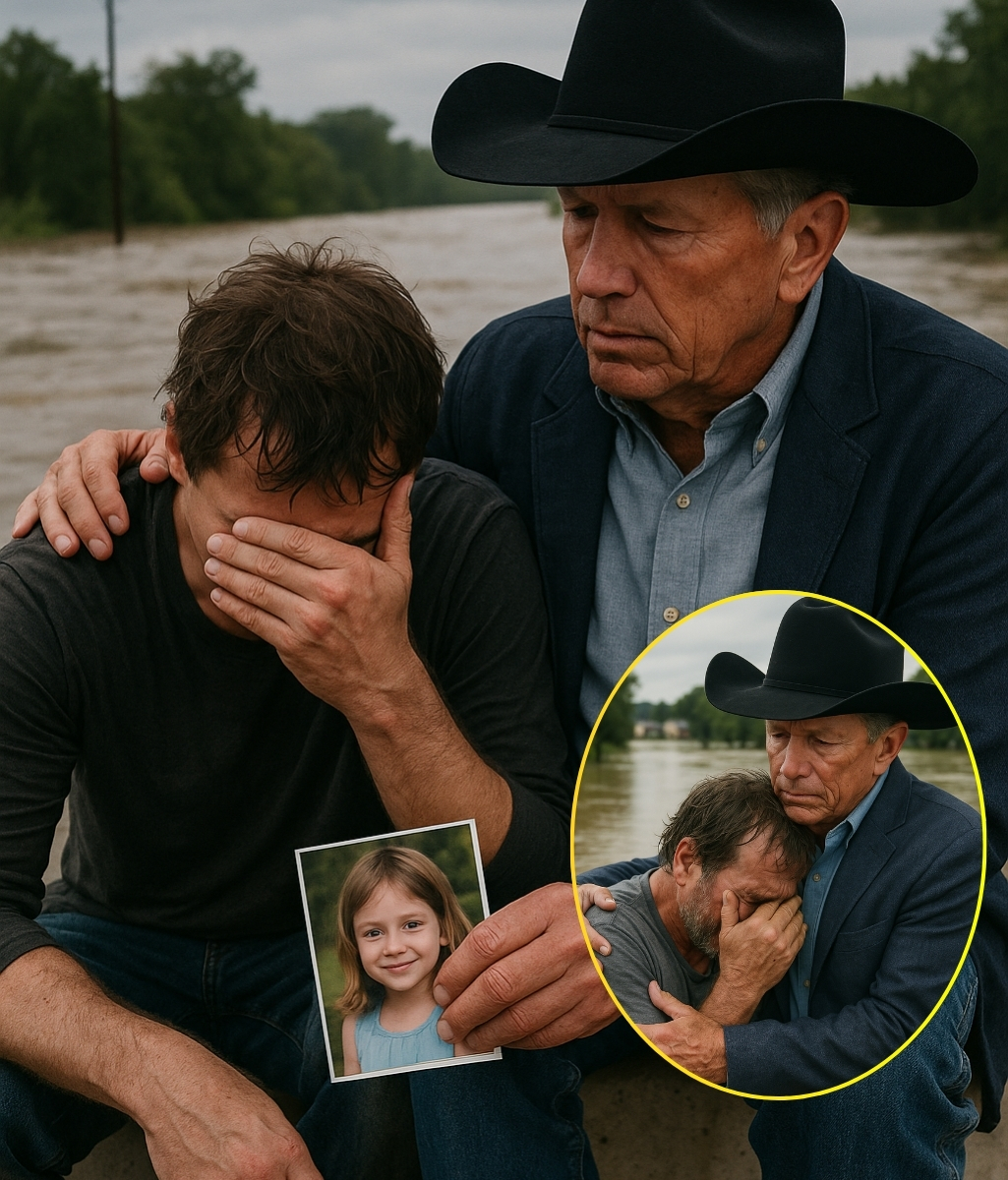
In the wake of a devastating Texas flood, one father’s nightmare became a national story. Michael, a 40-year-old father, had just learned that his daughter had gone missing in the floodwaters. His world was turned upside down, and in that moment, his grief and fear became every parent’s worst nightmare—waiting for news of a loved one, not knowing if they would ever return.
As he stood in the midst of his pain, unsure of what to do or who to turn to, a familiar face appeared. George Strait, the legendary country music icon known for his timeless hits, quietly entered the scene. But George didn’t come to offer grand words of encouragement, or to promise false hope—he simply came to share in Michael’s sorrow.
“I just want to sit with you for a while,” George whispered as he sat down next to Michael. His voice was calm, sincere, and filled with the kind of empathy that can only come from someone who has experienced deep loss themselves.
As Michael sat in stunned silence, George pulled out a worn photograph—an image of his own daughter, Jenifer, whom he lost many years ago. Without saying much, George handed Michael the photo, a gesture that spoke volumes. “You’re not alone,” he said softly, his voice a quiet reminder that even in the most unimaginable grief, there are others who understand.
Michael, overwhelmed by emotion, couldn’t hold back his tears. It wasn’t the fact that it was George Strait sitting beside him that moved him so deeply. It was the quiet sincerity of the moment—the acknowledgment that he wasn’t alone, that someone was there to share in his pain, without trying to fix it or offer empty words of comfort.
In those few moments, George Strait did something that no amount of fame or words could ever replace: he simply showed up. He stayed in the silence, allowing Michael to feel his grief without judgment or haste. The kindness and understanding in George’s presence gave Michael a brief, but much-needed respite from the emotional weight that had been bearing down on him.
This act of compassion is a reminder that sometimes the greatest comfort we can offer someone in pain is our presence. It’s not about offering solutions or trying to make the pain go away. Sometimes, the most healing thing we can do is just sit with someone, to listen, and to let them know they’re not alone in their suffering.
As Michael later reflected, it wasn’t about who George Strait was as a celebrity—it was about the human connection they shared in that moment of darkness. In his broken heart, Michael found a glimmer of hope, not because of the celebrity beside him, but because someone chose to simply be there, without trying to fix anything, just offering comfort and shared sorrow.
In the end, it wasn’t the flood that defined Michael’s story—it was the quiet moment of humanity, compassion, and understanding that will stay with him long after the waters recede.
